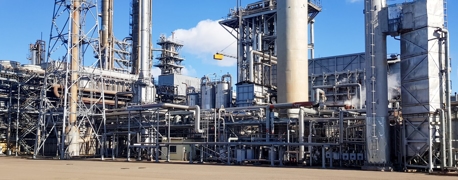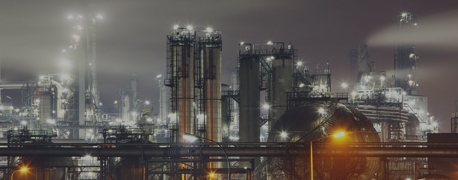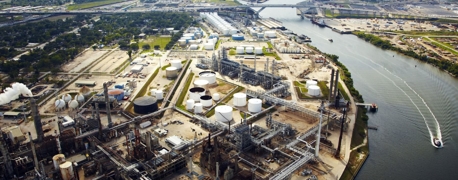Is Fertilizer Toxic? The Dangers of Ammonium Nitrate

A fire has been burning at the Weaver Fertilizer Plant in Winston-Salem, North Carolina since just before 7:00 pm Monday night, January 31. At least 6,000 residents within 1 mile of the plant have been evacuated in fear of an explosion.
Winston Weaver Co. has been in continuous operation as one of nearly 500 plants licensed by the Department of Agriculture to manufacture commercial fertilizer in North Carolina since the plant opened for business in 1940. In that time, the few inspections that raised concerns with OSHA had to do with workplace safety. Most recently, according to Winston-Salem’s Fire Chief William “Trey” Mayo, the plant was inspected in December and passed. However, the building, now more than 80 years old, was “grandfathered in” to some code requirements which it no longer meets.
The fertilizer plant fire in North Carolina raises more concerns than just the potential for an explosion. The air quality in Winston-Salem has been declared “very poor” according to local meteorologists and shifting winds on Wednesday have increased the affected area to include downtown. High concentrations of ammonium nitrate and other chemicals from the fertilizer are being released into the atmosphere, which begs the question: are these chemicals toxic?
Is Fertilizer Toxic?
The overall answer to this question is yes, and it should therefore be used with caution. There are two types of plant fertilizers: chemical and organic. Store-bought plant fertilizers are often made with chemicals and are mildly poisonous when consumed, even in small quantities. Touching certain fertilizers can even cause burn injuries. For this reason, the instructions listed on many commercial fertilizers will warn that people and pets should stay off the grass for up to 72 hours after a lawn has been fertilized.
The fertilizer manufactured at the Winston Fertilizer Plant consists of chemicals such as ammonium nitrate, which is effective as a fertilizer in agriculture due to its high nitrogen content. However, many countries have phased ammonium nitrate out of consumer use due to the dangers it presents, citing both accidental and intentional explosions. In fact, throughout the last century, thousands of people have been killed by accidental ammonium nitrate explosions.
What Is Ammonium Nitrate? Is It Dangerous?
Ammonium nitrate is an odorless, colorless compound that is highly soluble in water. As mentioned above, because it is so high in nitrogen, it is most often used in commercial agriculture as a fertilizer. Despite its effectiveness, however, it is banned in several countries because it can be extremely volatile when mixed with certain additives, or on its own under the right circumstances. At high enough temperatures, between 400 and 450 degrees Fahrenheit, ammonium nitrate can violently decompose, creating nitrogen oxides and water vapors. The rapid release of these gases can cause an explosion, especially when contained in an enclosed space. Contaminants, too, such as organic materials or acidic conditions, can increase the possibility of an explosion.
What Are the Symptoms of Ammonium Nitrate Exposure?
Aside from the dangers of a potential explosion, there are other side effects of the fertilizer plant fire in North Carolina. Burning ammonium nitrate can release toxic nitrogen oxides and ammonia into the air, and the inhalation of ammonium nitrate dust can cause respiratory tract irritation.
Symptoms of exposure to ammonium nitrate dust include:
- Coughing
- Sore throat
- Shortness of breath
- Skin redness
- Itching
- Eye irritation
- Weakness
- Depression
- Headache
If you have been exposed to ammonium nitrate and are experiencing any symptoms, do not delay in seeking medical attention. Call 911 immediately.
History of Fertilizer Plant Explosions
In the United States alone, there have been several deadly ammonium nitrate explosions since 2000, most notably the 2013 fertilizer plant explosion in West, Texas, which killed several people and injured dozens of others. This incident has been brought up in news coverage of this week’s fire due to its potential similarities; a fire raged at the West Fertilizer Company’s plant and resulted in a deadly explosion.
Our plant explosion lawyers are following the incident at the Weaver Fertilizer Plant closely. Our team is committed to supporting workers and those who live near chemical plants when the worst happens. When disaster strikes, people trust Arnold & Itkin to get the answers and help they need.


